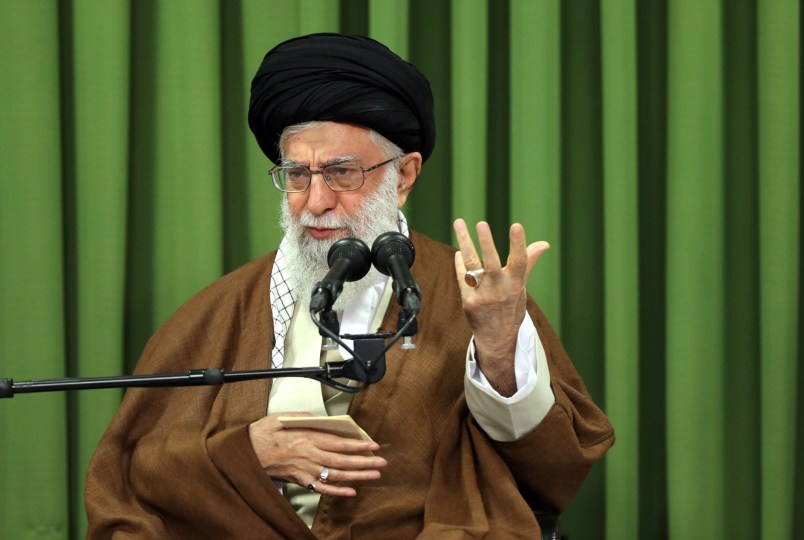Iran announced on Sunday that it will no longer abide by any of the limits on its nuclear program that were imposed by the multinational Joint Comprehensive Plan of Action (JCPOA), further increasing tensions with the U.S. after President Donald Trump ordered the assassination of Iranian military leader Qasem Soleimani.
“The Islamic Republic of Iran, in the fifth step in reducing its commitments, discards the last key component of its operational limitations in the JCPOA, which is the ‘limit on the number of centrifuges,'” the Iranian government said in a statement, per Iranian media outlet Mehr News Agency.
“As such, the Islamic Republic of Iran’s nuclear program no longer faces any operational restrictions, including enrichment capacity, percentage of enrichment, amount of enriched material, and research and development,” the government continued.
Tehran said it would be willing to return to the terms of the nuclear deal if the U.S. lifted its sanctions and “Iran benefits from its interests enshrined in the JCPOA.”
Additionally, Iran said it would continue to cooperate with the International Atomic Energy Agency (IAEA).
Tehran’s decision was spurred by Soleimani’s death via drone strike on Friday, which Trump and his administration claimed was a preventative measure against a yet-to-be-explained “imminent” threat from Iran. In his aggressive “maximum pressure campaign” against Iran, Trump withdrew the U.S. from the nuclear deal in May 2018.
After the strike last week, the Trump administration warned Congress that it expects Iran to hit back “within weeks.” A military adviser to Iranian Supreme Leader Ayatollah Ali Khamanei said that Iran would attack U.S. “military sites” in reprisal for the assassination.
However, Secretary of State Mike Pompeo dismissed potential retaliation from Iran as “a little noise” on Sunday.



